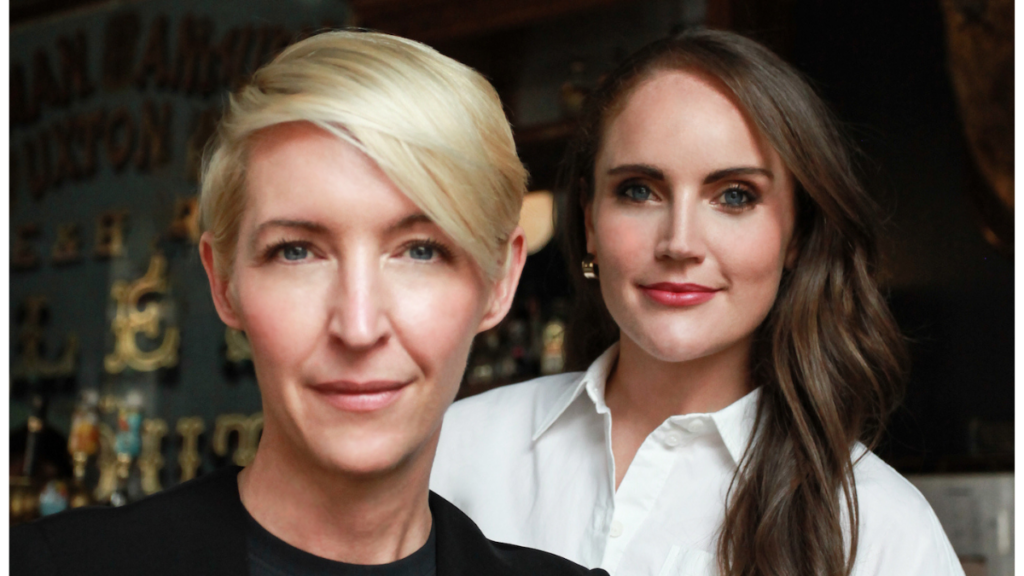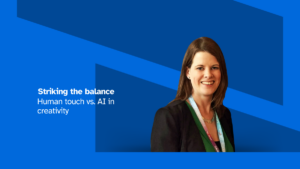NDA’s Andy Oakes sat down with Christiana Brenton and Georgie Holt of Telling Media, the first podcast media agency in UK to find out about the model, their aims and the lessons they’ve learned and are applying to the new business
‘Telling is the first podcast media agency founded in the UK. At Telling, we want to champion the power of performance marketing in the channel to UK advertisers and equally, the European podcast market to US brands who are already advertising in podcasts. Having spent nearly a collective decade working in the podcast industry in the US, the UK and Australia, co-founders Christiana Brenton and Georgie Holt want to highlight the performance marketing gap between the US and the UK. In the US, well over 52% of the $2.3bn spent on podcast advertising is via performance marketing or a ‘direct response’ model (IAB and PwC). In the UK and Europe however, it is estimated that much less than 20% of the podcast advertising budgets come from performance marketing budgets (sourced data from multiple marketplaces). This leaves a huge opportunity for European advertisers to see podcast advertising as a performance marketing channel and for US advertisers to find new customers in the international podcast market.
We believe these gaps exist because of the timelines that the podcast markets were established on and the type of advertisers that scaled them. The US went first and it was the direct-to-consumer brands who not only scaled the US podcast ad market but scaled their own businesses by spending on podcast advertising because of its effectiveness. Why? Because podcast advertising drives conversions for advertisers. In a recent study by Annalect, podcast advertising delivered +60% higher ROAS than any other channel tested for sales conversions. Which is why it is so effective for advertisers with performance or direct response KPIs. Podcast advertising is particularly effective for direct-to-consumer brands looking to scale their business, which is one of the areas Telling will specialise in. There are multiple success stories of brands that have achieved this including; HelloFresh, Audible, Betterhelp and Athletic Greens.
We believe that innovation in podcasting advertising is something brands can be very confident about – although it can be a complex space for brands to navigate – Telling will simplify the landscape working with partners that are improving and implementing improvements in; CPA style deals, data onboarding, targeting, transparency in measurement and attribution, as well advancements in AI. Telling believes AI will enable ad budgets and podcaster revenue to scale but it needs to be done in a very thoughtful way to protect the special relationship that podcasters have with the hundreds of millions of people who love them. It is in fact this special relationship and the high levels of audience attention that delivers the strong ROAS for advertisers. In a study by Signal Hill, podcasts delivered the highest attentiveness than any other channel tested: +48% higher than TV and +100% than video.
We think the evolution of podcasts to become multi-platform ‘listening experiences’ is a big opportunity for advertisers, creators and audiences – while the industry is still working out what it wants to call a podcast that is also a YouTube video, a TikTok edit or using Spotify’s video capabilities – for Telling it’s simple. The podcast industry is moving towards an ecosystem of ‘listening experiences’ that will evolve the catch-all ‘creator economy’ (which most advertisers are well versed in) to something more akin to a ‘listening economy’. Which will for many creators and advertisers, outperform their original goals. We are already seeing data that proves advertisers who have performance marketing or direct response KPIs are seeing the big potential in ‘simulcasting’ (podcasts published on a RSS feed and on YouTube). In Magellan AI’s Q2 23 advertising benchmarking report there is now a higher % of ‘direct response advertisers’ spending on simulcasts vs just podcasts (38% vs 28%) and what is even more telling is that simulcasts had a higher ‘renewal rate’ than podcasts from direct response advertisers, which is a primary indicator from this type of advertiser that the ROAS is strong and CPA goals are being met (44% for simulcasts vs 34% for podcasts).
One of Telling Media’s big lessons from other industries, particularly for Georgie who had a long career in media publishing, is that it’s vital we prove to young and emerging creators and talent that there is a robust ‘ad economy’ in podcasting. Ensuring the pipeline of new voices is strong and diverse by demonstrating that, if they choose to create a successful ‘listening experience’ for their community, advertiser revenue will follow (as it does freely on many other digital and social platforms). In publishing for example, we saw the closure of many brilliant brands because they were not able to bring in new voices and audiences to their publications, leading to reduced ad dollars, which in turn impacted resources, staffing, quality and innovation in the sector. This is why Telling wants to ensure that we close the performance advertising gap, bring more advertisers and drive more innovation in podcasting. This will encourage new voices and audiences to the medium, creating the flywheel effect we all know is possible.
We are proud to be one of very few female-founded media agencies at Telling Media in the podcasting and agency space. We want to pave the way for other women to do the same and will be sharing our learnings and insights as we go to anyone who may find them useful. We’ve personally and professionally spent a lot of time working on developing workplaces that are safe for folks to thrive on their own terms, bringing their unique and special sense of self-expression to their work and their team. We never want to follow the ‘one of us’ dynamic (we can still hear the chants now) that can come through scale-up and start-up culture, but instead, we have an ‘all of us’ mindset when it comes to our work and our growth.










